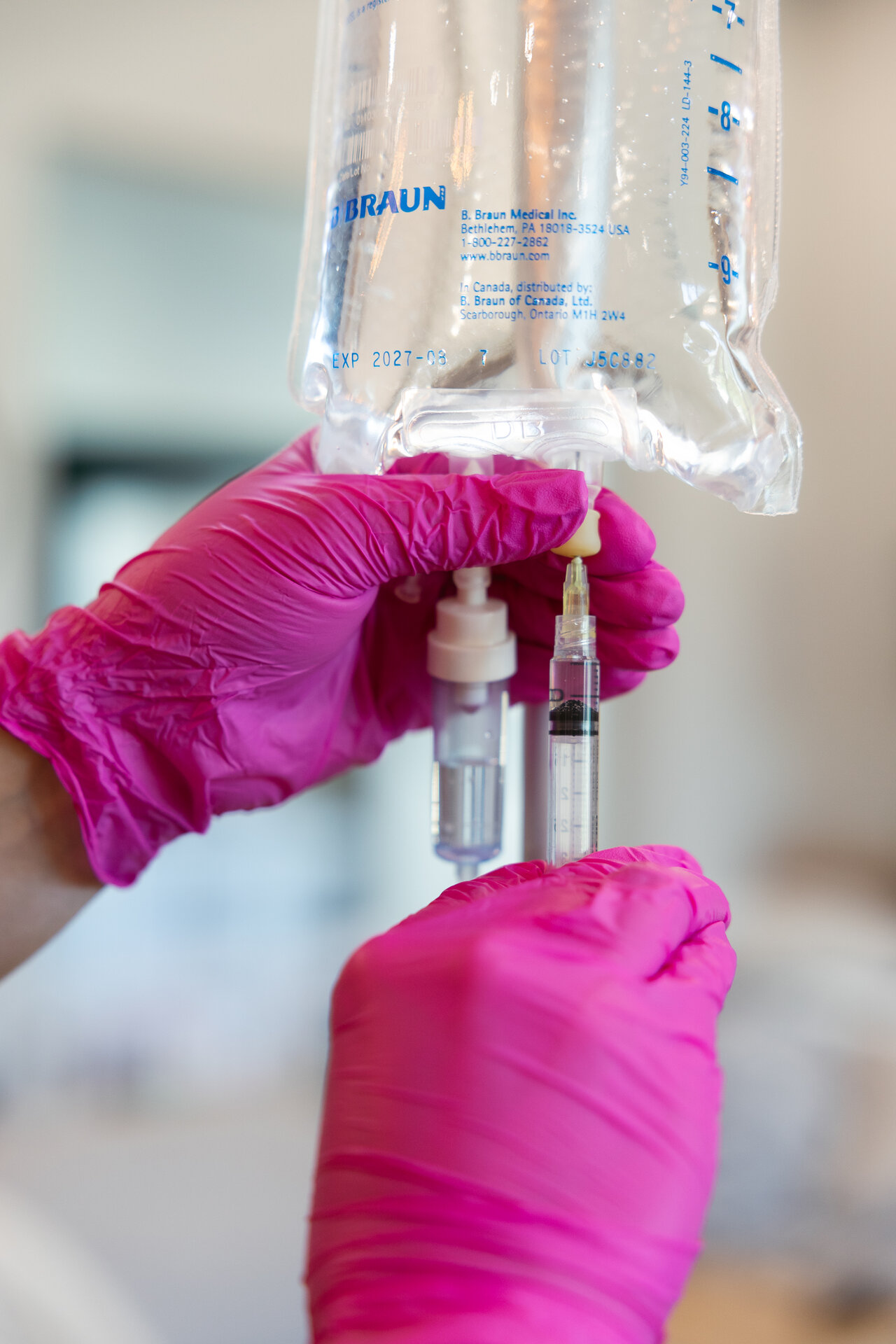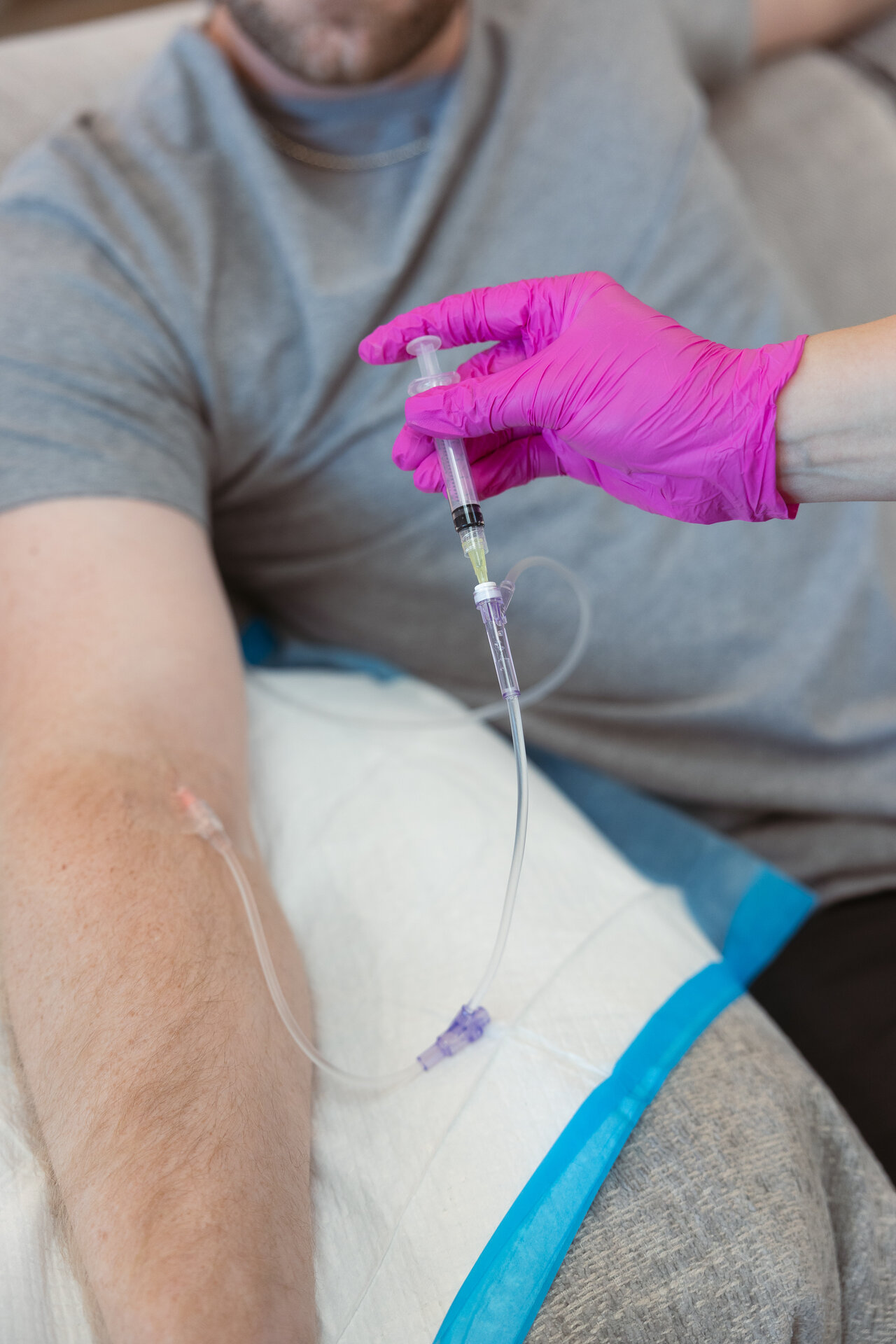Replenish IV Components
Our basic rehydration IV includes 1000 mLs lactated ringer solution, balanced electrolyte fluid designed for optimal hydration and recovery.
1000 mLs Lactated Ringer Solution
Composition: Sterile water with sodium, chloride, potassium, calcium, lactate
Purpose: Restores hydration, replenishes essential electrolytes, supports healthy pH balance
Electrolyte Support
Function: Replaces vital minerals for muscle, nerve, cellular function
Benefit: Promotes fluid balance, reduces fatigue, enhances wellness
IV Administration Equipment
Included: Sterile catheter, tubing, and infusion supplies
Standard: Single-use medical-grade materials





